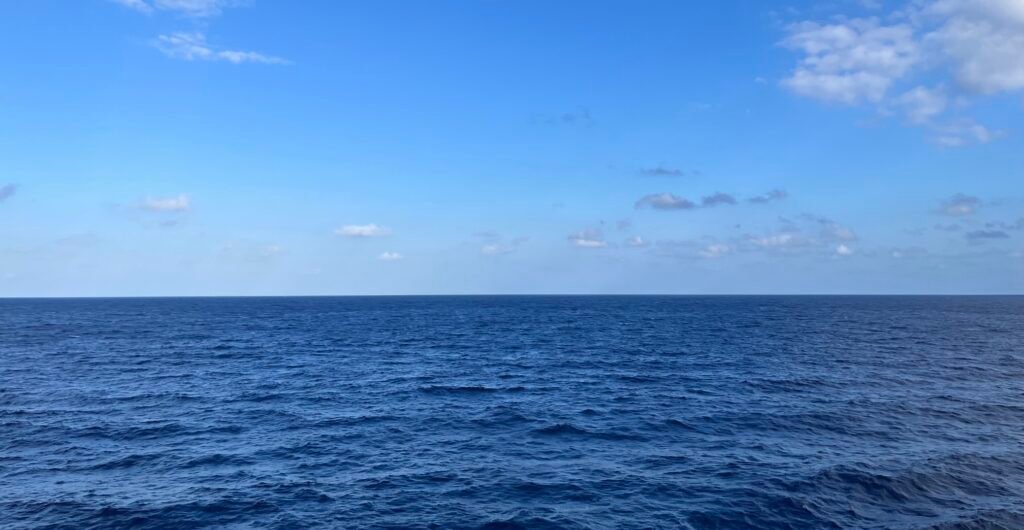by Mia Barnes
Traveling offers an incredible opportunity to explore new destinations, immerse yourself in different cultures and enjoy the beauty of nature. Think the beauty of our amazing oceans. Can responsible tourism help protect our precious oceans?
With millions of people traveling annually, our oceans are increasingly impacted by pollution and environmental degradation. As a responsible traveler, you can make choices that help protect the oceans while still enjoying extraordinary experiences.
The Environmental Impact of Tourism on Oceans
The tourism industry significantly affects ocean health, especially through pollution, habitat destruction and overfishing. Coastal and marine tourism is estimated to account for a least half of global tourism and is a major economic sector for many small island developing states.
This type of travel relies on a healthy ocean to offer clean water and beautiful coastlines, but less than 25% of tourism-sector companies acknowledge the industry pressure on coastal and marine biodiversity. Nevertheless, travelers are becoming more informed and — as a result — prioritizing sustainable tourism. These are some ways you can make a difference.
Educate Yourself and Others
The first step is to raise awareness about ocean conservation. Staying informed about the impact of tourism on the ocean and sharing your knowledge with other travelers helps a lot.
Share valuable tips for responsible travel and highlight wellness-focused experiences and destinations that align with sustainable practices.
Support Ethical Operators
Ethical travel involves being conscious of the impacts that tourism has on the environment, wildlife and communities. It means recognizing your position as merely a guest, yet one that holds the ability to create either positive or negative effects.
When booking excursions, choose companies that prioritize ethical and environmentally friendly practices. Avoid tours that exploit marine life, such as those that allow you to touch or feed wild animals. Instead, look for operators that follow responsible wildlife viewing guidelines and contribute to ocean conservation efforts.
Choose Eco-Friendly Accommodations
Many hotels and resorts are taking significant steps to reduce their environmental impact in response to tourist’s demands. In fact, around 65% of travelers feel better about booking a stay if an accommodation has a sustainable certification. Explora Journeys is one cruise line that is committed to sustainable practices.
These labels typically mean that the establishment prioritizes sustainability by reducing plastic waste, conserving water and using renewable energy. Some eco-resorts even support marine conservation efforts by funding coral reef restoration projects or implementing policies to protect local aquatic life.
Reduce Single-Use Plastics
One of the biggest threats to ocean health is plastic pollution, which affects ecosystems and the extinction of wildlife. Polystyrene — a lightweight plastic typically used for surrounding packaging and insulation — alone makes up 10 to 40% of plastics found in waterways and is littered more than any other waste product.
Though large corporations should work to implement greater modifications, everyday people can make small yet impactful adjustments that encourage beneficial change. For example, you can opt for reusable water bottles, bring your own shopping bags and avoid using plastic straws and utensils.
Be Mindful of Sunscreen Choices
Many conventional sunscreens contain chemicals such as oxybenzone and octinoxate, which can harm coral reefs once they deposit from your skin into the ocean water.
Choose reef-safe sunscreen made with natural minerals like zinc oxide or titanium dioxide. This small change can help protect delicate marine ecosystems from further damage.

Look After the Beach
One of the most direct ways to practice ecotourism while helping ocean conservation is to clean up after yourself and dispose of waste properly, according to local regulations. Many coastal communities organize public cleanup events, and some tour operators even offer eco-tours that include removing public waste from beaches and waterways.
These efforts help keep shorelines clean and prevent marine life from ingesting or getting entangled in plastic debris. This is especially important considering that 8 million metric tons of plastic end up in the ocean every year, harming aquatic life and ecosystems.
Travel Off the Beaten Path
Over-tourism can strain local ecosystems, including coastal and marine environments. Instead of visiting overcrowded destinations, consider choosing less popular local sites where your presence can leave a more positive economic impact. This is also beneficial for you, as it lets you experience unique and untouched natural beauty while reducing stress on popular tourist spots.
Final Thoughts
Every traveler has the power to make a difference. Adopting responsible tourism practices helps protect our oceans while enjoying the beauty of coastal destinations. The next time you plan a trip, consider how your choices can contribute to a healthier planet and a more sustainable future for travel.
_ _ _ _ _
Other articles by Mia Barnes: Tips for staying healthy and comfortable on long-haul flights and What is Ecotourism. Why it matters and how you can participate Mia Barnes is Editor-in-Chief at Body+Mind

